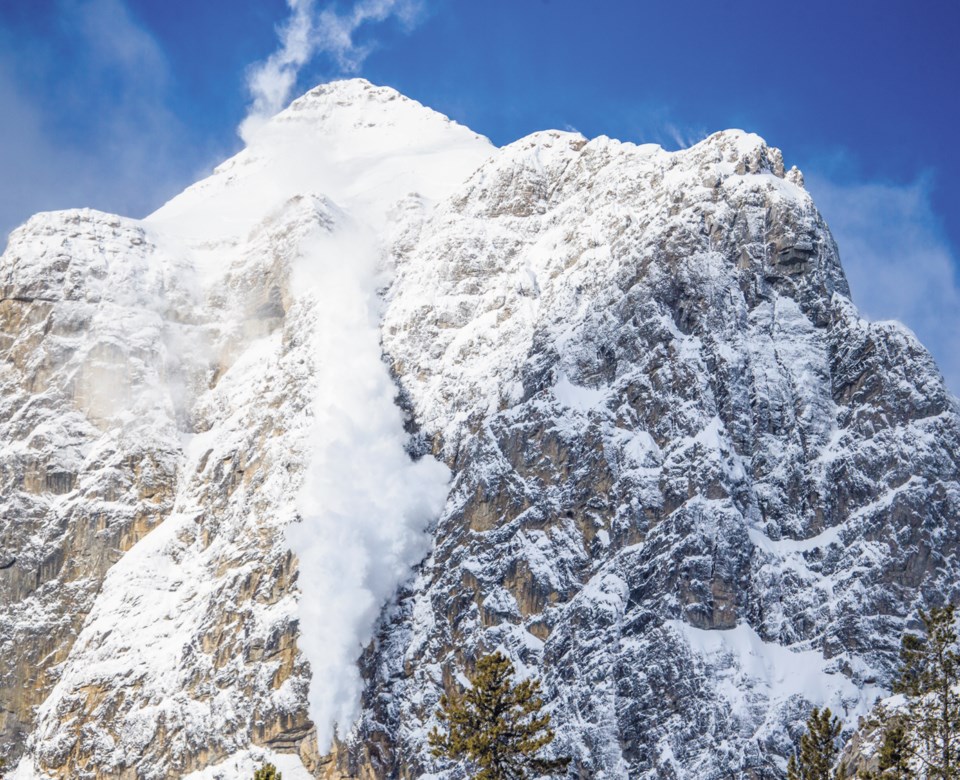Parks Canada has issued a special public avalanche warning this weekend for Banff, Yoho, Kootenay, Jasper, and Mount Revelstoke and Glacier National Parks. The warning also includes Alberta Parks in Kananaskis Country. The warning was issued on Feb.
Parks Canada has issued a special public avalanche warning this weekend for Banff, Yoho, Kootenay, Jasper, and Mount Revelstoke and Glacier National Parks. The warning also includes Alberta Parks in Kananaskis Country.
The warning was issued on Feb. 8 following a heavy snowfall that left up to 50 centimetres in some areas. The warning will remain in place until Feb. 12.
"The lure of powder and fresh sunny skies are going to be strong, but we want to get the message out that it's not the time to be ducking lines and venturing into the backcountry," said Lisa Paulson, a public safety specialist with Parks Canada.
She described the current avalanche cycle as some of the worst she's seen in her career.
"It's up there for sure," said Paulson.
According to the federal agency, there are a number of persistent weak layers buried 80-150 centimetres deep that have been overloaded by the recent snowfall and fresh wind and storm slabs are likely to trigger these layers if they are initiated.
"Everything is so touchy, so it's time to ski inbounds and if you do have some avalanche skills training and have been following the bulletins, you want to stick to the very low angle, well away from overhead hazards," said Paulson.
She said they've been seeing a lot of remotely triggered avalanches running about a metre- to a metre-and-a-half deep in some spots.
"Even today some avalanches were triggered with a 12-kilogram bag of explosives hitting the slope. It didn't even go off and it triggered a massive avalanche."
The avalanche danger for the weekend is listed as "high" and "considerate" throughout the national parks, according to Avalanche Canada, which is warning backcountry travellers to avoid all avalanche terrain, including crossing run out zones in valley bottoms.
Over the past two weeks the Rockies have been through a prolonged period of elevated avalanche danger and a major avalanche cycle where numerous large avalanches have been running well into the valley bottom, according to Parks Canada.
Several major highways were closed on Feb. 8, including the Trans-Canada west from Lake Louise to Field, B.C. The highway remained closed as of 11:30 a.m. on Feb. 9, according to Alberta 511.
The Icefields Parkway is also expected to remain closed until Feb. 10 for avalanche control.
The heavy snowfall kept Parks Canada visitor safety specialists busy throughout the day on Feb. 8, including remotely triggering an avalanche on the Sunshine access road around 5:40 a.m. which closed the road for several hours.
According to Paulson, the avalanche came down the Bourgeau five path, an area that regularly sees avalanches.
"It's not usually an area where cars are parked," said Paulson. "We shoot these paths regularly. In fact, we had just done them the week before."
She reiterated several times that anyone who is considering going into the backcountry this weekend should stick to very conservative terrain, be mindful of any run outs and ensure they have avalanche skills training.
"It's a weekend to be really careful and give yourself a big buffer."
For more information, visit www.avalanche.ca and www.aberta511.ca for up to date road conditions.
